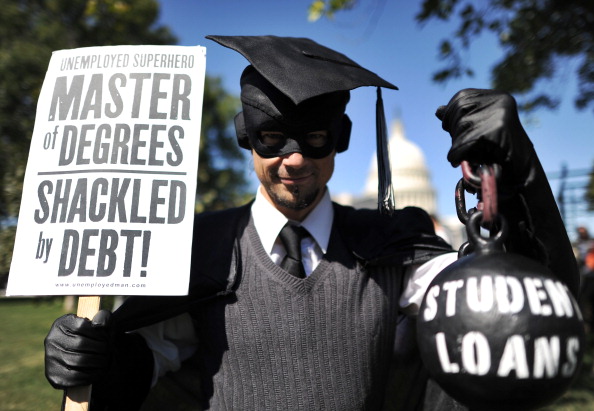Yes, You Can Get an Affordable Education

Noah Kristula-Green and David Frum have written articles in the past week about the high cost of college tuition and its linkage to student loan debt. Noah aptly points out that one way affluent parents can pass along wealth to their children is by paying for college so their children won't have a debt burden upon graduation and David mentions the fact that most private colleges have similar tuition rates, regardless of their academic rank, so there's no real price competition.
I've written about the issue of tuition and student loan debt here at FrumForum. My prior article provides a public policy suggestion on this issue (making student loan debt dischargeable in bankruptcy) and this piece by Mike Konczal at Rortybomb is worth reading for a summary of how bankruptcy rules have changed over the past decades on this issue. Simply returning to the system we had in 1989 (read the Konczal article to see what that means) would go a long way to alleviate burdens on current debtors and put some market discipline on both lenders and debtors going forward.
But such suggestions don't help parents or students seeking assistance now. It takes a long time for public policy to change and the same is true for general economic trends. One of the reasons why students go into a lot of student loan debt is because they want to go to private colleges rather than state schools, because they don't want to go to a school where they are just a number.
This isn't an unreasonable concern, because many students at public universities find themselves lost in classes of hundreds of people, if they even are able to register for the classes they need. Many students go to private colleges that cost as much as Ivy League or Ivy League-caliber schools but lack the cachet or job placement of such schools, simply because they want a more personalized education. This is particularly true for academically serious students and the irony is that such students end up penalized for their intellectual curiosity because they want a college experience that involves reading, writing and discussion rather than filling out Scantron forms.
There is an alternative for such students and their parents, however. In recent decades, public universities all over America have founded honors colleges on their campuses. Such colleges are more than just honors classes for juniors and seniors who make good grades. They are liberal arts college environments set up in big state universities that allow students (particularly in-state students) to receive a private college education for the price of a big state school education.
Typically, students in such programs have separate honors housing, small classes, faculty mentors and unique research opportunities. Honors colleges create an atmosphere in which participants are part of a small community of academically-inclined students who are encouraged and given tools to succeed. One can find such programs all over the country and one's home state. The Macaulay Honors College at CUNY is a fine example of this sort of program, as is the Barrett Honors College at Arizona State and the Honors College at the University of Oklahoma.
There is nothing wrong with wanting to get a liberal arts education, including in fields like anthropology or the classics, regardless of what people like Florida Governor Rick Scott or Rush Limbaugh say. The problem is, unless one goes to a major-name private college (where one's major is less important than the name on the degree), has wealthy parents who can pay full price or gets a full-ride scholarship, this can lead to a difficult debt burden upon graduation.
Honors colleges are a tool against such student loan debt indenture. Many prospective students and their families are unaware of this option and more should know about it and take advantage of it.

